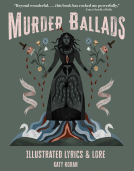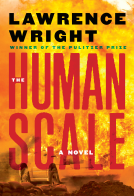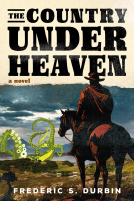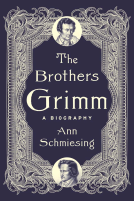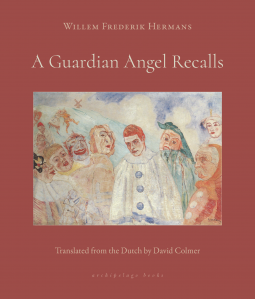
A Guardian Angel Recalls
by Willem Frederik Hermans
This title was previously available on NetGalley and is now archived.
Send NetGalley books directly to your Kindle or Kindle app
1
To read on a Kindle or Kindle app, please add kindle@netgalley.com as an approved email address to receive files in your Amazon account. Click here for step-by-step instructions.
2
Also find your Kindle email address within your Amazon account, and enter it here.
Pub Date Nov 16 2021 | Archive Date Oct 22 2021
Talking about this book? Use #AGuardianAngelRecalls #NetGalley. More hashtag tips!
Description
A Guardian Angel Recalls is a gripping and diabolical wartime novel by one of the most provocative Dutch writers of the twentieth-century.
Alberegt, a frenzied and lovelorn public prosecutor, speeds through Hook of Holland in his black Renault on May 9, 1940 – the eve of the German invasion of the Netherlands. Guiding his every move is a guardian angel.
With unflappable patience, the angel flits from the hood of the Renault to the rim of his windswept hat, determined to quell his every anxiety and doubt. The angel's momentary distraction, however, sets off a chain of events that spins a nightmarish web.
Alberegt's elusive companion serves both as narrator and meddlesome driver of the plot, though not without the interventions of a rotating cast of devils.
Advance Praise
“[Willem Frederik Hermans's] world is bleak, plain and murderous, and sometimes hilarious, which is an unsettling kind of genius.” --Michael Pye, author of Antwerp
"Influenced by Franz Kafka and Thomas Mann, [Willem Frederik Hermans] produced some of literature’s most profound reflections on the second world war."--Dalya Alberge, The Guardian
"With its hapless protagonist, acerbic tone, and laughable rumors of war (including German paratroopers disguised as nuns), much of this newly translated 1971 novel by the late Hermans is a comedy of errors. But its scenes of destruction are shattering and surreal . . . A sly but scorching Dutch masterpiece."
-- Kirkus Reviews, starred review
"Hermans interweaves a bitter, occasionally darkly comic moral fable with an unforgettable account of the Nazi invasion of the Netherlands, first published in 1971 and seamlessly translated by Colmer. . . . [A Guardian Angel Recalls] should establish Hermans as a modern Dostoyevsky."
--Publishers Weekly, starred review
"Underrated: the Dutch writer Willem Frederik Hermans, especially his novel An Untouched House." -- Ian McEwan, Times Literary Supplement
"Hermans is one of Holland's great 20th-century writers." --David Mills, The Times
Praise for An Untouched House
"It takes an hour or two to read, but An Untouched House is the kind of book that stays with you forever." --Sam Jordison, The Guardian
"A slim but potent war story . . . Hermans doesn't deliver an explicit moral judgement on the narrator... but the thundering violence of the closing pages sends its own message. Fire, a suicide attempt, torture, and hanging are all shadowed by men killing with a cynical, mocking cruelty, stressing Hermans's point that dreams of peace can easily become entangled in violence. A dark wartime vision that evokes Koestler, Orwell, and Vonnegut." --Kirkus Reviews, starred review
"Although An Untouched House is brief, it is worth pacing oneself and absorbing its remarkable density. Hermans is the architect of a masterful story - concise but expansive in vision... a lucid, exhilarating account." --Peyton Harvey, Zyzzyva
"As disturbing and powerful as anything by Joseph Heller or Kurt Vonnegut." --Michael Faber, The Guardian
"An Untouched House is a small but unforgettable story about the schizophrenia of war. W.F. Hermans's writing is implacably precise, always searching for truth, evocative but austere, and thoroughly addictive. Reader be warned: after An Untouched House you will want to read everything this great European author wrote!" --Peter Terrin
"It is a novel of desperate survival. But the sensation it transmits is not desperation; rather, the entirety of it, even the horrific scenes of death and torture, feels like a nightmarish dream through which both the reader and the characters wander, without much choice and absolved of all morality... It is perhaps this very immediacy, the apparent inexistence of anything beyond the present moment, which makes Hermans's novella not only bearable, but utterly immersive." --Juan E. Suarez, Meridian
"The most unsettling book I've read this year, An Untouched House proves the horror and inhumanity of the twentieth century just that: unsettled. Hermans' pithy masterpiece is a warning." --Hal Hlavinka, Community Bookstore
"In An Untouched House, a disillusioned WWII partisan soldier deserts and finds an abandoned house where he decides to stay. What unfolds is a strange and taut psychological tale of how individuals might choose to ignore the horrors of the outside world until they inevitably come crashing down around them. Ending in an explosion of violence that illuminates the true savagery of the human heart, this little stick of dynamite is less than 100 pages and damn near perfect." --Keaton Patterson, Brazos Bookstore
"Crackling with uneasy tension . . . A beautiful new edition of a powerful and timeless, slim Dutch masterpiece, written in a spare and crisp style that brings to mind Camus." --The Lady
"Profoundly unsettling . . . haunts the mind for long afterwards." -- The Sunday Times, A Book of the Year
"Those who do simply open and read will find themselves immersed in a nightmare miniature where philosophical musing gives seamless way to beautiful but unyielding cruelty...this newer translation by David Colmer seems to better capture the unsettling horror." -- Ben Murphy, Full Stop
*
* * *
Available Editions
| EDITION | Other Format |
| ISBN | 9781953861023 |
| PRICE | $20.00 (USD) |
| PAGES | 250 |
Featured Reviews
 Fran E, Reviewer
Fran E, Reviewer
"His blood seemed thick with sorrow. He had come into great distress without my being able to help it, without my being able to help him...Still, I had kept my eye on him...his whole life. I was his guardian angel."
Simon (Bert) Alberegt, a thirty eight year old, portly public prosecutor, would live precariously between a rock and an hard place, a life filled with moral and ethical dilemmas. Over a period of five days, his poor decisions would overload his coping mechanisms despite having a guardian angel sitting on his shoulder.
May 9, 1940, was the eve of the German invasion of the Netherlands. Using his connections, Bert was able to book a passage to England from the Hook of Holland for his German Jewish girlfriend, Sysy. It was true love for him. Perhaps someone, just useful for her. He was despondent. Could he follow her to England? He was preoccupied with missing her but still needed to present the final arguments at the courthouse on a case against a journalist accused of insulting Hitler. In a complete turn around, instead of asking for a maximum sentence, Bert planned on requesting a dismissal. In order to arrive on time, he took an illegal, deserted side road, entering from the wrong direction, and felt the impact of plowing into something. It was a young girl holding a letter in her hand. Clearly, she was planning to post the letter. Clearly, she was dead. What to do? With no witnesses, no one watching, he concealed the body in the bushes and drove to the appointed court date. Bert's guardian angel, the narrator of this tome, tried to encourage Bert to take responsibility for his actions. The devil, however, whispered a different suggestion in Bert's ear.
On May 9, 1940, the Nazi invasion had begun. Bert was determined to flee to England if he could beg or borrow the necessary funds. He had driven his car in the wrong direction, committed manslaughter and left the scene of an accident. He should have alerted the police. According to the devil, if Holland was bombed, would anyone worry about a child that was run over? Confess or flee? To complicate matters, Bert's friend Erik asked him to intercede and search for a young Jewish girl last seen posting a letter. The guardian angel's plea: "You can make amends for everything by doing penance. And that's the only thing of any value...You can't die besmirched as you are now...only if your soul has been cleansed, can it breathe with relief...". While trying to escape responsibility for his actions, the world was imploding around him.
Although Bert contemplated his own demise, his guardian angel shielded him from a bombing which leveled his workplace and the firebombing in Rotterdam which culminated in the Dutch capitulation to the Germans. There were those who did not recognize the plight of the citizenry. Some were not bothered by parachuters landing on their shores. Why not just lock your doors at night?
"A Guardian Angel Recalls" by Willem Frederik Hermans is a psychological study of a public prosecutor's inner conflict against the backdrop of the Nazi invasion and takeover of Netherlands in 1940. By failing to own up for his actions, Bert remained guilt ridden. It seemed that his square box of peppermints was the only solace to soothe his tortured soul.
A masterpiece of historical fiction. Highly recommended.
Thank you Archipelago Books and Net Galley for the ARC in exchange for an honest review.
 Robert S, Reviewer
Robert S, Reviewer
Written in Dutch and newly translated into English, this is a novel of human moral frailty in the midst of war. Set in the Netherlands in the early days of World War II, as German armies roll over the small country, the book follows a provincial Public Prosecutor as his world crumbles. He wanders more or less aimlessly across a landscape of rumors, flashes of horrible violence and destruction, confusion (moral and otherwise), and absurdity. The narrator is our hero's Guardian Angel, but he is not all that successful as guard or moral compass.
A good deal of the book is darkly humorous; one can make comparisons to Heller's Catch-22 or Vonnegut's Slaughterhouse Five or Kafka. The characters are believable humans living through unbelievable circumstances. The author uses an understated style - the story is told in a rather matter-of-fact way. There are, however, wonderful stretches of prose: the description of our hero's visit to a modern church, for instance, is heartbreaking and beautiful. Similarly, his conversations with his mother are gems of insight and bathos.
All in all, an excellent and rewarding book.
 Mandy J, Reviewer
Mandy J, Reviewer
First published in Dutch in 1971, and now available in a new English translation. The central conceit of this powerful and insightful novel is that the protagonist Alberegt has a Guardian Angel talking in one ear, trying to guide and advise him, while a motley crew of devils whisper conflicting advice in the other. Poor Alberegt. Things are not going well for him. It’s the eve of the Nazi invasion of the Netherlands, and he has just seen off the German Jewish refugee he has been sheltering onto a ship to America before the Germans arrive. Should he have gone with her, this woman he has fallen in love with? Or should he report her and get her arrested, so that she stays? He’s a Public Prosecutor and next has to recommend whether or not to punish someone who has “insulted” Hitler, something proscribed by Dutch law. But what is the right thing to do? So conflicted is he that when he is involved in an accident on the way to court, he panics and fails to react wisely. And his decision making skills aren’t helped by having an angel and a devil whispering to him. The book is a comedy of errors in a sense, but on a deeper level is a profound meditation on personal responsibility, guilt and innocence, right and wrong, moral and ethical actions against expedient ones, and what is our duty towards others, how should we act in the face of persecution and injustice. Against the backdrop of the German invasion of May 1940 Alberegt has to navigate his way through this moral maze and decide on what the “right” thing to do is. It’s a bleak and deeply unsettling novel, and for me the angel/devil device worked well. I found the author’s insight into Alberegt’s inner conflicts authentic and convincing, especially as things become more and more nightmarish. The writing never flinches from describing the horrors of the initial invasion and the reader is well aware that there are more horrors to come. A compelling and thought-provoking read.
Translated from the Dutch Herinneringen van een engelbewaarder by David Colmer, the story focuses on the life of public prosecutor Bert Alberegt and the first few days of the German invasion of the Low Countries (the Netherlands, Belgium and Luxembourg) and France as told by a guardian angel – thus the title A Guardian Angel Recalls. 9 May 1940, around 24 hours before the eventuality, rumours about Hitler’s plan to invade Western Europe seemed imminent but people still clung to their hope of the ‘phoney war’ and the fact that the Netherlands was a neutral country. But not to Sysy, a German Jewish woman whom Alberegt has been sheltering for four months, who left for England from the Hook of Holland on that very day. On the same day after letting Sysy go, Alberegt was caught up in involuntary manslaughter as he ran over a young girl on the way to court. In a panic, he hid the corpse of the young girl while he went to the trial – still not recovering from his distress – and asked for the acquittal of a journalist who wrote an article insulting Hitler in a newspaper.
Throughout the day, Alberegt questions his decision of not leaving for England with Sysy and begged for a loan from some close friends and family to buy a passage to England. If he had left, he wouldn’t run over the poor young girl or made the impulsive decision of asking for the acquittal of the brave journalist. Alberegt, as a public prosecutor, could be said as a symbol of law and order. In face of the eventuality of war, it’s the very notion of law and order that is in danger of being stripped out of a country as small as the Netherlands. Alberegt is questioning his value as a public prosecutor who should be upholding justice, yet on the same day, he could not come clean about the fact that he just ran over an innocent young girl. The conflict between Good and Evil is also being represented by the narrator itself, the guardian angel, and the devil who whispers to Alberegt’s head, thus influencing his decisions. Are humans really free to make decisions as social agents?
Willem Frederik Hermans through the story of Alberegt paints it clearly the nature of war that does not choose its victims. As an upholder of the law, Alberegt keeps mumbling to his colleagues and friends about the supranational power of international law – a tradition in the Netherlands that began from the day of Hugo de Groot who was among the earliest proponents of international society doctrine – and asserting the impossibility of the Netherlands to be dragged into Hitler’s war with her neutrality. Yet we could see the eventual occupation of the Netherlands after 1940, which is captured day by day in this story, as though proving that irrationality might thrive in the situation of war.
The choice of the guardian angel as the narrator of the story is also something that might be related to the irrationality of war as told in this story. The process of secularisation (ontkerkelijking in Dutch) was on the rise in the interwar period, with more than 10% of the Dutch population identifying themselves as irreligious or unbeliever in 1930, and it’s not exceptional that Alberegt identifies himself as so. Yet both the guardian angel and the devil are described as though they influence Alberegt greatly through their whisperings. Some other characters are also fond of signs, as shown by Lina and Mimi who take some subtle signs as the guiding principle for making their choices during the first few days of the invasion.
This book is a gem in Dutch literature comparable to the works of Harry Mulisch or Hella Haasse. In the style of writing, Willem Frederik Hermans reminds me very much of Albert Camus or Anna Seghers in his ability to bring up inner conflict within his main characters to the surface without losing the touch on the panic situation caused by the German invasion. It’s also a good social critic of the nature of international law and its questionable power to uphold peace when faced with calculating or irrational leaders. Hitler was able to manipulate the international law of his time, getting by with absorbing Austria in an Anschluss and absorbing part of Czechoslovakia following the Munich Agreement. Being a neutral country that relies on international law did not save the Netherlands from getting occupied. Alberegt’s story probably finds its relevance again now with the current situation in Ukraine and it questions the extent of what civilians like Alberegt could do, despite his high social standing as a public prosecutor, while he is faced with a mob.
Readers who liked this book also liked:
Laura Shepherd-Robinson
General Fiction (Adult), Historical Fiction, Mystery & Thrillers


